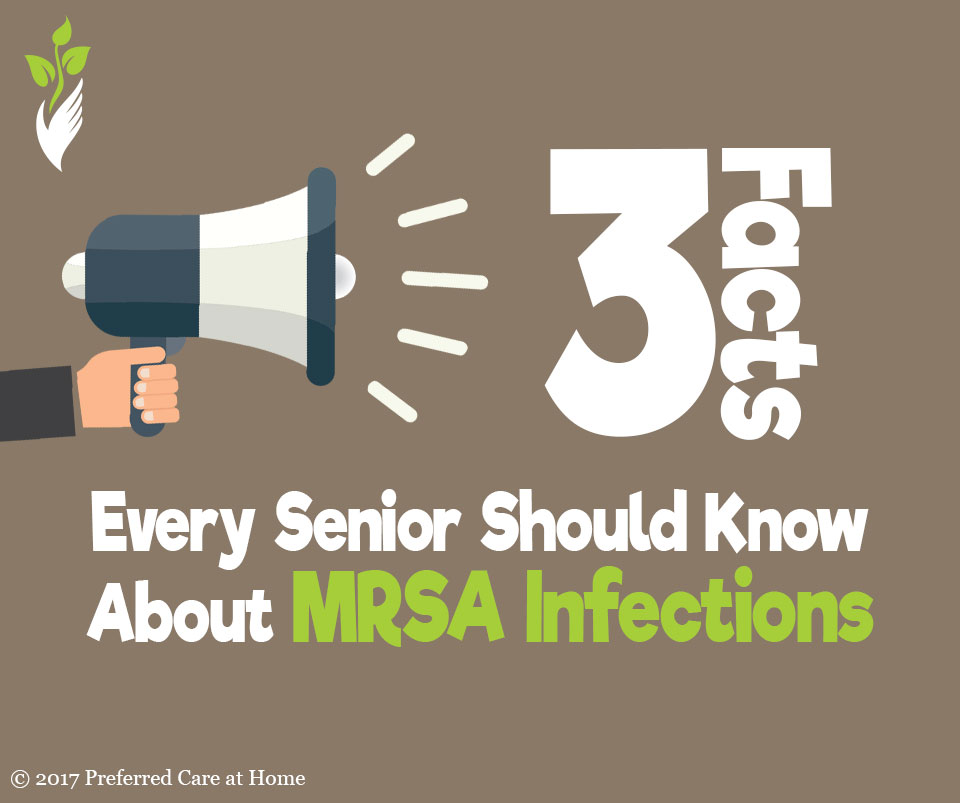3 Facts Every Senior Should Know about MRSA
Published January 10, 2017 by R. Bradley Robinson, M.D. in Home Care Services, Senior Health & Wellness

If you’ve ever spent any amount of time in the hospital, you’ve likely heard of MRSA. First discovered in 1961, Methicillin-Resistant Staphylococcus aureus (MRSA) is responsible for a variety of infections in the human body. MRSA has been called a ‘superbug’ because it has developed resistance to multiple antibiotics and can lead to infections that are difficult to treat. Because seniors are more susceptible to these infections, here are three facts every senior should know about MRSA.
Fact #1 MRSA Can Cause a Variety of Infections
For seniors who undergo a stay at a hospital or other healthcare facility, hospital-acquired MRSA infections are a feared complication. These infections include pneumonia, bloodstream infections, or infections of a surgical site. A hospital-acquired MRSA infection will extend the length of your hospital stay, and in severe cases, may even lead to death.
Fact #2 Hospital MRSA Infection Rates Can Be Viewed Online
Did you know that you can compare local hospitals on the basis of hospital acquired infections including MRSA? The Medicare.gov Hospital Compare tool is very useful, and may influence which hospital you choose for an elective surgery or hospital admission. This resource can be accessed at https://www.medicare.gov/hospitalcompare/search.html Type in your zip code, select the hospitals to compare, then select the ‘Complications’ tab to view the Healthcare Associated Infections data for your local hospitals.
Fact #3 MRSA Infections Can Be Prevented
MRSA is usually transmitted by skin-to-skin contact and by the hands of healthcare providers. As such, proper hand-washing and use of sanitizer gel is the backbone of MRSA prevention. For patients who have a documented MRSA infection, gloves and a gown should be worn by all persons entering the room to provide health care. As a patient, if your nurse or physician is not using gloves and you did not witness them washing their hands, it is reasonable to ask them to use sanitizing gel or a pair of gloves while in the room.
For more information, visit our resource page on MRSA Symptoms, Risks, and Prevention. If you would like to find out how our caregivers can help prevent MRSA by providing linen sanitation, guidance with hygiene and other services, contact a location near you.
If you have questions about senior home
care services or if you want to start care:
Related Posts

January 27, 2025
Is There a Food Allowance Card for Seniors?
Jody Guerrieri, RN.

January 27, 2025
What Causes Glassy Eyes in the Elderly?
Jody Guerrieri, RN.

January 27, 2025
What Age Is Considered a Senior Citizen?
Jody Guerrieri, RN.
Helping seniors age in place, with dignity & grace.